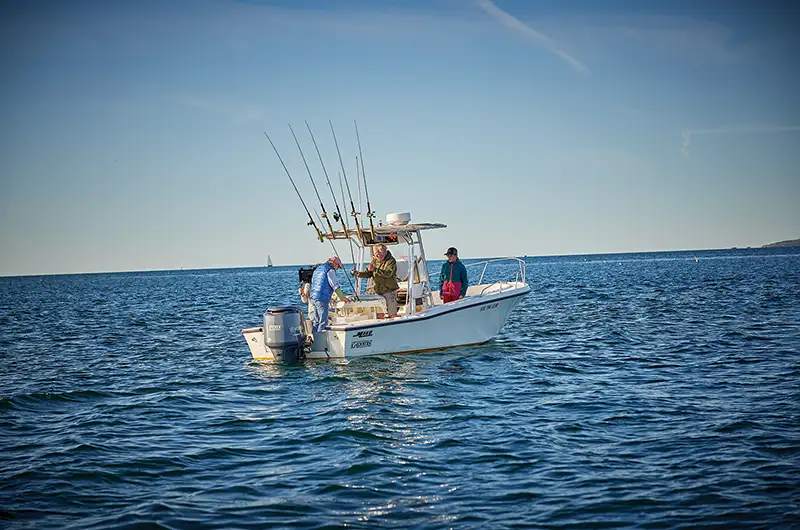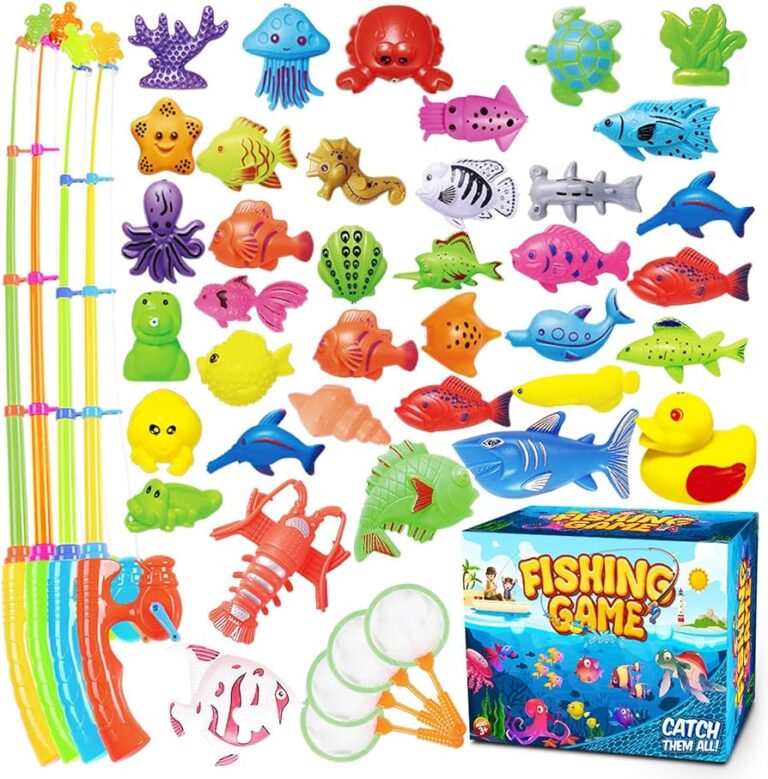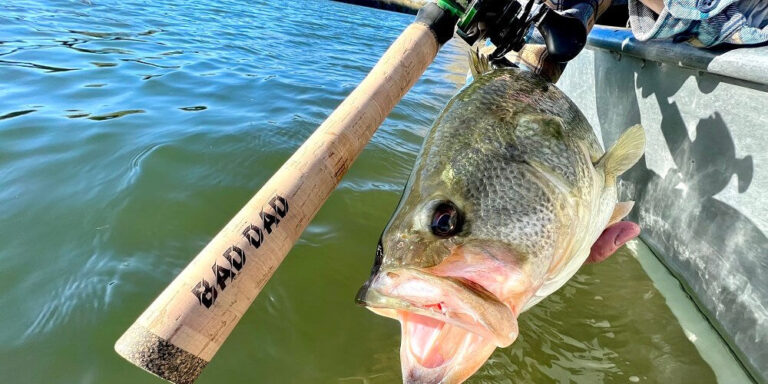Water Safety Tips For Fishing, Boating: Stay Safe on the Water
Fishing and boating are fun activities. But they can be dangerous too.
Staying safe on the water is crucial. Whether you are a beginner or an expert, knowing the right safety tips can save lives. Proper preparation is key to enjoying your time. From wearing life jackets to understanding weather patterns, there are several essential steps to take.
These tips ensure you have a pleasant experience while minimizing risks. By following simple guidelines, you can protect yourself and others. Let’s dive into some important water safety tips for fishing and boating.
Importance Of Water Safety
Ensuring water safety during fishing and boating is crucial. Many people love these activities, but they can be dangerous. Understanding the importance of water safety can prevent accidents and save lives.
Risks Involved
There are several risks associated with fishing and boating. Drowning is the most significant risk. Many accidents happen due to not wearing life jackets. Weather can change quickly, causing rough waters. Boats can capsize or collide with other objects. Poor swimming skills increase the risk of drowning.
Benefits Of Safety Measures
Following safety measures reduces risks. Wearing a life jacket is the simplest and most effective safety measure. It keeps you afloat if you fall into the water. Checking weather forecasts before your trip is important. It helps you avoid dangerous conditions.
Always inform someone about your plans. Tell them your route and expected return time. This helps rescue teams find you if needed. Carry essential safety equipment. This includes a first aid kit, flashlight, and whistle. These items can be life-saving in an emergency.
| Safety Measure | Benefit |
|---|---|
| Wear a Life Jacket | Keeps you afloat |
| Check Weather | Avoids rough waters |
| Inform Others | Speeds up rescue |
| Carry Safety Equipment | Handles emergencies |
Remember, safety measures can prevent accidents. They ensure enjoyable and safe fishing and boating experiences.

Credit: www.boatus.com
Essential Safety Gear
Going fishing or boating is fun, but safety should come first. Essential safety gear can make a big difference in an emergency. Let’s explore the most important items you need for a safe trip on the water.
Life Jackets
Life jackets are the most important safety gear. Everyone on board should wear one. Make sure the life jackets fit well. They should be comfortable and not too tight. Check that they are U.S. Coast Guard approved. This ensures they meet safety standards.
Test the life jackets regularly. Look for any signs of wear or damage. Replace any that are old or worn out. Even strong swimmers need life jackets. They can save lives in rough water or unexpected situations.
First Aid Kits
A first aid kit is a must-have. Keep it in an easy-to-reach place. Make sure it’s stocked with all necessary items. Bandages, antiseptic wipes, and pain relievers are essential. Include scissors, tweezers, and a digital thermometer.
Check the kit before each trip. Replace any used or expired items. Knowing how to use the first aid kit is important. Take a basic first aid course if you can. This knowledge can be very helpful in an emergency.
Pre-trip Preparations
Getting ready for a fishing or boating trip can be exciting. But, it’s crucial to make sure everything is in place for a safe adventure. Proper pre-trip preparations not only ensure safety but also enhance the overall experience. Below are some key steps to follow.
Weather Check
Always check the weather forecast before heading out. This helps avoid unexpected storms or strong winds. Pay attention to:
- Wind speed and direction
- Temperature changes
- Precipitation chances
If the forecast predicts bad weather, consider rescheduling. Safety should always come first.
Equipment Inspection
Inspecting your equipment is a must. This ensures that everything is in working order. Key items to check include:
- Life jackets – Ensure they are in good condition and fit everyone properly.
- Fishing gear – Check for any damage or wear and tear.
- Boat engine – Test it to make sure it runs smoothly.
Also, pack a first-aid kit, a fire extinguisher, and emergency flares. These can be lifesavers in unexpected situations.
Here’s a quick checklist for your equipment:
| Item | Condition |
|---|---|
| Life Jackets | Good |
| Fishing Gear | Checked |
| Boat Engine | Tested |
By following these pre-trip preparations, you set the stage for a safe and enjoyable trip. Stay prepared, stay safe, and enjoy your time on the water!

Credit: www.alumacraft.com
Safe Boating Practices
Fishing and boating are enjoyable activities that can bring peace and relaxation. However, safety must be a priority. Following safe boating practices ensures you and your companions stay protected on the water. This section will cover speed regulations and alcohol restrictions, which are essential for safe boating.
Speed Regulations
Understanding and adhering to speed regulations is crucial. Speed limits are there to protect everyone on the water.
- Know the local speed limits for the area you are boating.
- Slow down near shorelines, marinas, and crowded areas.
- Always be aware of your surroundings to avoid accidents.
High speeds can lead to loss of control. This endangers you and others. Always operate your boat at a safe and controlled speed.
Alcohol Restrictions
Alcohol and boating do not mix. Operating a boat under the influence is dangerous.
- Many regions have strict laws against boating under the influence (BUI).
- Alcohol impairs judgment, balance, and coordination.
- Designate a sober skipper to ensure everyone’s safety.
Staying sober allows you to react quickly to any situation. It ensures a safe and enjoyable trip for all.
Fishing Safety Tips
Stay safe while fishing and boating by wearing life jackets. Always check the weather forecast before heading out. Keep a first-aid kit handy and inform someone of your plans.
Fishing can be a relaxing and enjoyable activity. Yet, safety is very important. Follow these tips to ensure a safe fishing experience.Proper Casting Techniques
Casting is an essential skill for fishing. Always check the area around you. Make sure no one is standing close. Hold the rod firmly. Use smooth and controlled movements. Avoid sudden jerks. This helps to prevent injuries.Handling Fish Safely
Handling fish requires care. Wet your hands before touching the fish. This protects the fish’s slime coat. Use a towel if needed. Avoid squeezing the fish too hard. Use a net to lift the fish from the water. Always handle fish with wet hands or gloves. Be gentle to avoid harming the fish. Release the fish back into the water quickly. “`
Credit: seatow.com
Emergency Procedures
Being on the water is both fun and relaxing. But emergencies can happen. Knowing what to do in these situations is crucial. Here, we focus on two key emergency procedures: Man Overboard and Engine Failure.
Man Overboard
If someone falls overboard, act quickly. First, shout “Man overboard!” to alert everyone. Then, throw a life ring or floatation device. Keep your eyes on the person. Do not lose sight of them. Turn the boat around carefully. Approach the person slowly. Use a ladder or rope to help them back on board. Safety first. Always wear a life jacket.
Engine Failure
Engine failure can be stressful. Stay calm. First, drop the anchor to avoid drifting. Check the fuel supply. Sometimes, the issue is simple. Look for any obvious problems. If you cannot fix it, call for help. Use a VHF radio or your phone. Signal for help using flares or flags. Safety gear is essential. Always have a backup plan.
Environmental Awareness
Environmental awareness is crucial during fishing and boating activities. Respect the environment to ensure a healthy ecosystem. This mindset helps protect wildlife and avoid pollution. Let’s explore how you can make a difference.
Protecting Wildlife
Wildlife plays a vital role in maintaining a balanced ecosystem. Avoid disturbing animals in their natural habitat. Keep a safe distance from nesting birds and marine life. Use wildlife-friendly gear to minimize harm.
Do not feed wild animals. It can disrupt their natural feeding habits. Dispose of fishing lines properly. They can entangle and injure animals. Respect no-fishing zones. These areas are crucial for breeding and recovery.
Avoiding Pollution
Pollution affects water quality and marine life. Dispose of trash in designated bins. Never throw waste into the water. Use eco-friendly products on your boat. Avoid harsh chemicals that can harm the environment.
Check your boat for oil leaks. Even small spills can be harmful. Reduce plastic use. Plastic waste can be deadly to marine creatures. Participate in clean-up drives. Help keep the waterways clean for everyone.
Post-trip Safety
After a day of fishing or boating, post-trip safety is important. Properly handling your equipment and gear ensures a safe and successful next trip. Neglecting post-trip safety can lead to damaged gear and potential accidents.
Cleaning Equipment
Always clean your equipment after each trip. Remove any dirt, salt, or debris. This helps prevent rust and extends the life of your gear. Use fresh water to rinse off rods, reels, and other tools. Let them dry completely before storing.
Storing Gear Properly
Proper storage is crucial for maintaining your gear. Store your rods in a vertical position. This prevents bending or warping. Keep reels in a cool, dry place. Use covers to protect them from dust and moisture. Secure your tackle box and other items to avoid damage or loss.
Frequently Asked Questions
What Are The Essential Water Safety Tips For Fishing?
Always wear a life jacket, even if you are a strong swimmer. Check weather forecasts before heading out. Avoid alcohol consumption while fishing. Keep a first aid kit handy. Inform someone about your fishing plans.
How Can I Stay Safe While Boating?
Wear a life jacket at all times. Check weather conditions before departure. Follow navigation rules and signals. Avoid alcohol consumption. Carry essential safety equipment such as flares and a whistle.
What Should I Do In Case Of Bad Weather While Fishing?
Seek shelter immediately if you notice bad weather. Always have a weather radio or app for updates. Avoid fishing during thunderstorms. Head back to shore as soon as possible. Stay calm and follow safety procedures.
How To Ensure Children’s Safety While Boating?
Ensure children wear properly fitted life jackets. Teach them basic water safety rules. Supervise them constantly. Avoid letting them sit on the boat’s edge. Educate them about emergency procedures.
Conclusion
Staying safe on water is key to enjoying fishing and boating. Always wear a life jacket. Stay alert to weather changes. Avoid alcohol while boating. Check equipment before heading out. Respect water rules and guidelines. These tips help ensure a fun and safe experience.
Keep them in mind every time you go out. Happy and safe adventures on the water!



